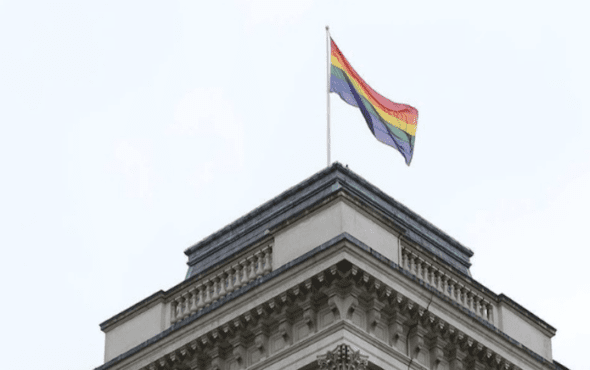
Ghana’s parliament has held its first public hearing regarding its proposed archaic anti-LGBTQ+ bill.
On Wednesday (10 November), officials gathered to discuss the Promotion of Proper Human Sexual Rights and Ghanaian Family Values Bill 2021.
The bill, which has been condemned by numerous LGBTQ+ rights groups, was first leaked in July.
Under the proposed legislation, it states that “any person who deviates from an arbitrary standard of sexual orientation or gender identity is immediately to be considered dangerous, sick or anti-social.”
If the controversial law passes, LGBTQ+ people or individuals who “hold out” for the queer community can face five to 10 year prison sentences.
Medical care for trans people will also be at risk due to the law criminalising anyone giving care to individuals undergoing gender-affirming treatment.
The hearing was filled with people who opposed the terrifying bill and those who supported it.
Professor Henry Kwasi Prempheh, who serves as the executive director of the Ghana Centre for Democratic Development, called out the bill for its lack of democracy.
“The proponents of the bill have sought to make much of the fact that this is a democracy and therefore the will of the majority must prevail. And prevail including in legislation,” he said.
“May I remind the proponents of this bill that this democracy for which we’ve all fought to maintain, is not a populist democracy, it is not just a majoritarian democracy, it is a constitutional democracy which means that even the majority including, acts that are passed by parliament, are subject to constitutional limitations.”
Prempheh went on to say that, even though the bill has received support from the “momentary majority”, it doesn’t give grounds for it to be passed.
“The constitution’s provisions on fundamental human rights are indeed one of such safeguards,” he said.
”So merely because you‘re part of a momentary majority – and majorities are fleeting – merely because you see yourself as part of a momentary majority, does not entitle you to impose your will on even one individual in the society.
“If that individual is indeed backed by the constitution, if the person is standing up against the majority. So majority might confer might, but it doesn’t confer right.”
The director-general of the Ghana AIDS Commission, Kyremeh Atuahene, also condemned the bill and said that funding for HIV response would be in jeopardy.
“Donor funding for the HIV response covers the HIV and TB services for men who have sex with men and transgender people,” he said.
“These health services have nothing to do with the activities the bill seeks to proscribe, but may be construed to be if the bill is passed in its current form.
“Donors will [therefore] withdraw their funding if they are criminalised by this bill.”
The hearing comes a few weeks after Ghana’s president Akufo-Addo encouraged lawmakers to take part in a “civil” debate when addressing the bill.
“What I would hope for is that the debate itself be civil, that we will recognise the need for us to be tolerant of each other even when there are opposing views,” he told PeaceFM.
“I think it will be a credit to Ghanian democracy if this matter is handled in the correct manner.”
According to a report from Reuters, 10 petitions are set to be heard over the next few weeks before the bill is voted on.



